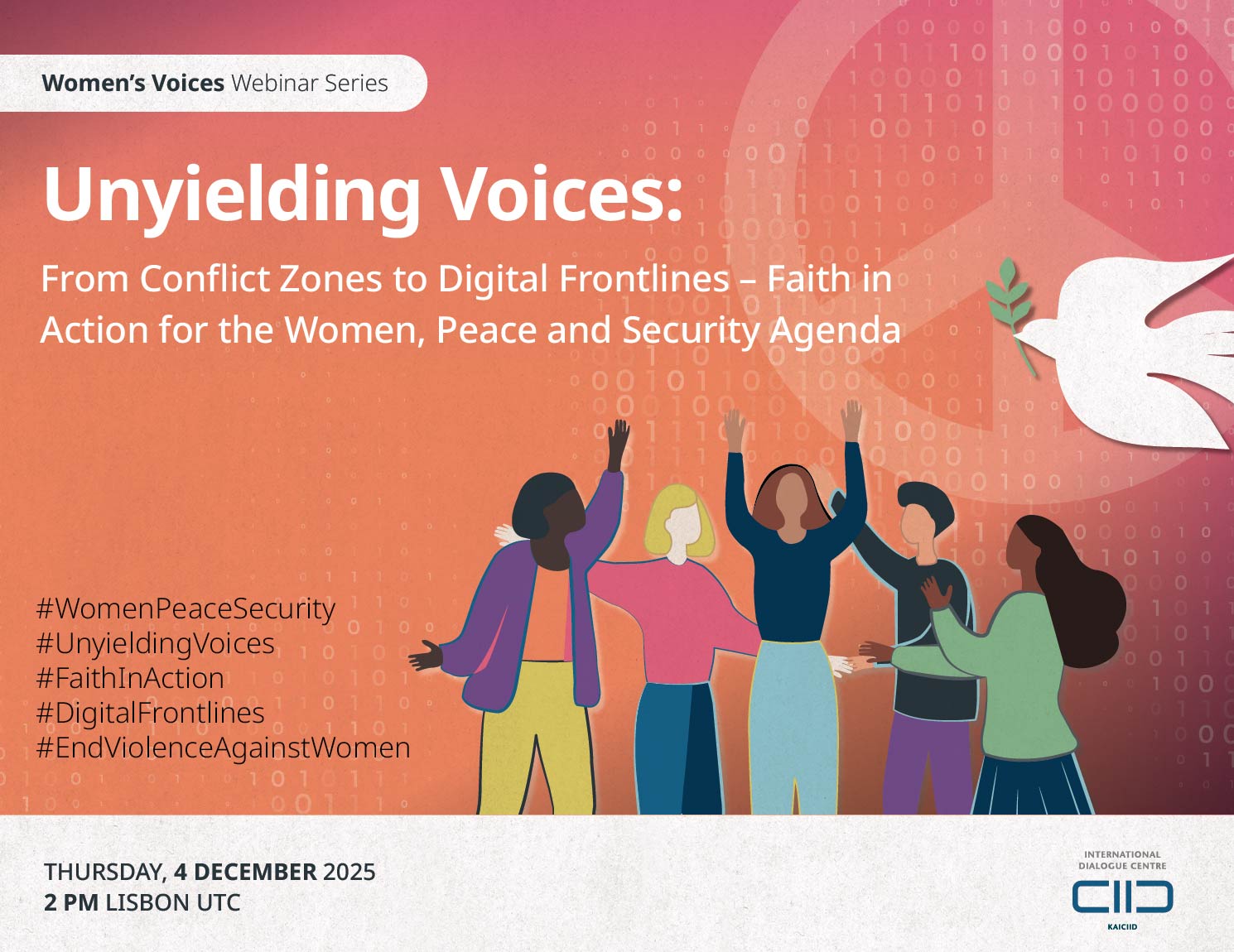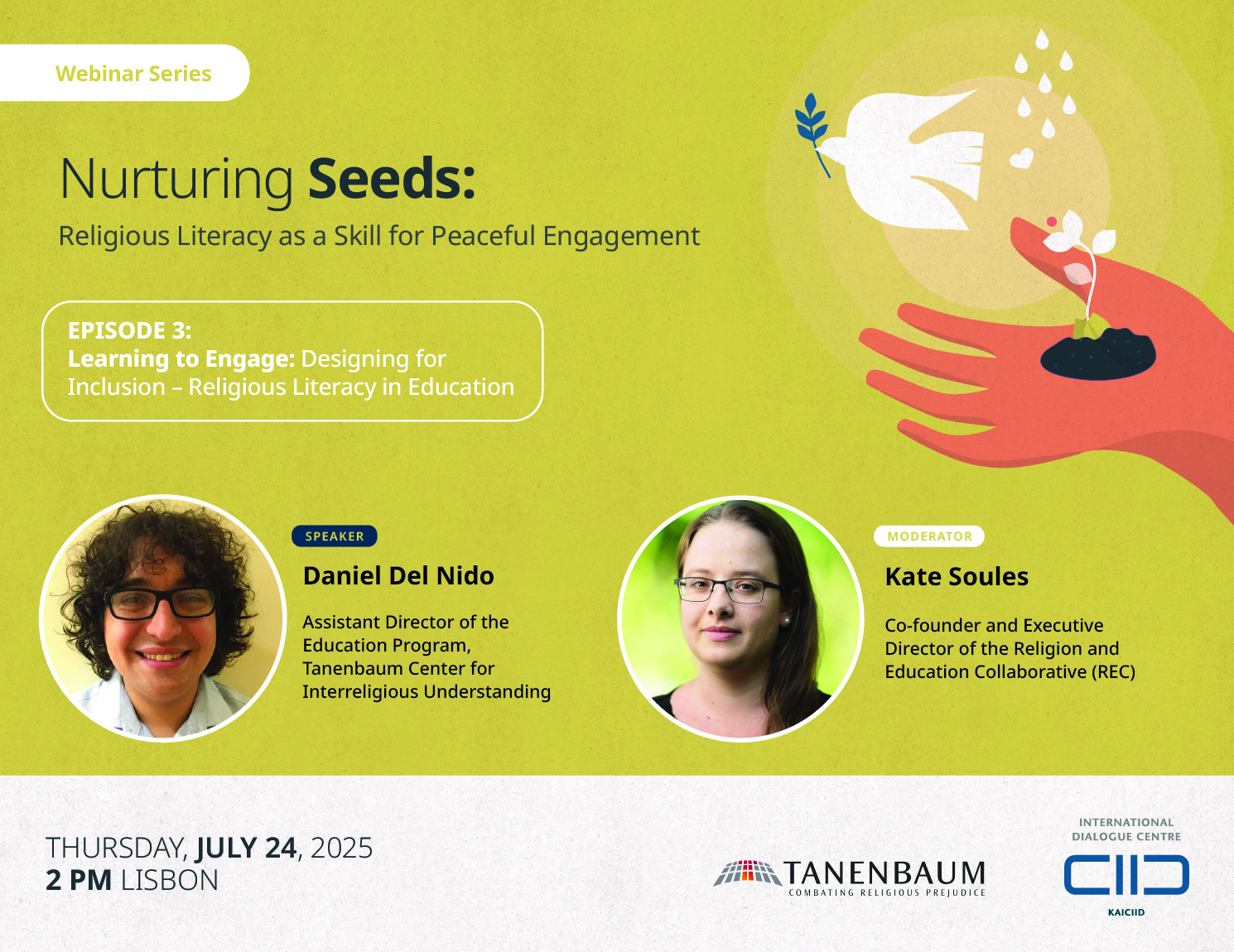#DialogueDespiteDistance: Resources for Combatting COVID-19
Where Online Zoom Application
Time
Europe/Lisbon
Date
Speakers
H.E. Faisal bin Muaammar
Dr. Kezevino Aram
Rev. Dr Martin Junge
Prof. Mohammed Abu-Nimer
Ms. Bani Dugal
Imam Sheikh Mohammad Ismail DL
Prof. Katherine Marshall
Ms. Saydoon Nisa Sayed
Elder Justina Mike Ngwobia
Language English
Interpretation English
REGISTRATION IS CLOSED



